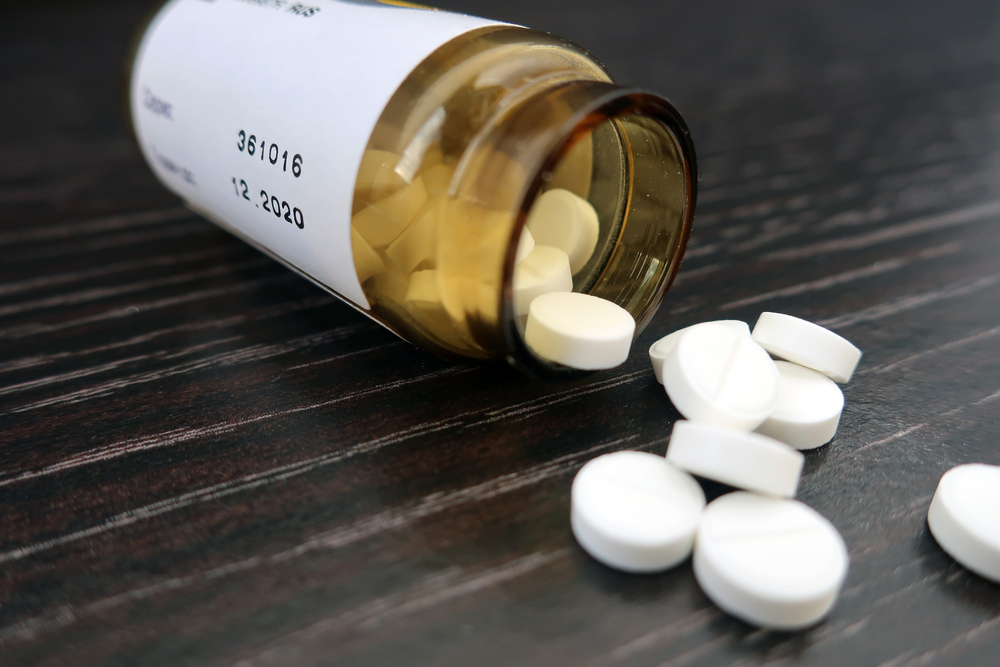Understanding Ultram Addiction – Side Effects & Solutions

Ultram is the brand name for tramadol, which is an opioid painkiller. This medication is often prescribed to relieve moderate to severe pain. Ultram is a narcotic, meaning that there is a risk for abuse and addiction. Even if the medication is taken under a physician’s supervision, this risk is still present.
The Effects of Ultram on the Body
Ultram has an effect on the processing of pain signals traveling between the brain and the nerves. Ultram – like other opiates such as hydrocodone and oxycodone – binds to the opioid receptors located in the brain and spinal cord. This produces pain-relieving effects that the drug is prescribed for and a euphoric effect when the drug is abused.
Because Ultram is not quite as potent as some other opiates that are commonly abused (hydrocodone, morphine, etc.) when injected, there is a misconception that it is safer. However, when Ultram is taken by mouth, it is then converted into a compound that is called O-desmethyltramadol, which is much more potent and activates the opioid receptors. This produces the feeling of getting high.
Potential side effects that may occur when taking Ultram are:
- Headache
- Difficulty falling asleep
- Sweating
- Dizziness
- Constipation
- Diarrhea
- Nausea
- Loss of appetite
- Dry mouth
- Tremors
Long-Term Effects of Ultram
When used for a prolonged period of time, Ultram has some undesirable long-term effects. For this reason, many physicians are reluctant to prescribe it in the long term.
Cognitive Impairment
When opioids are used in the long term, cognitive decline can occur in many cases. You may experience confusion and slowed reaction times. This can make activities like driving difficult and sometimes even dangerous.
Because a patient’s brain chemistry is altered when Ultram is taken, there is a risk of developing a tolerance to the medication. Because the body adjusts to having a specific amount of Ultram, an individual might need to take more of the medication for it to have an effect.
Physical Dependence
Patients can also become physically dependent upon Ultram. They may get to the point where they need the medication to function normally. If they stop taking it, they may experience withdrawal symptoms.
Ultram Addiction Symptoms and Signs
If you think you might have a problem with Ultram or you think someone you love might have a problem, take note of the following symptoms and signs:
- Using Ultram multiple times a day
- Using more Ultram than prescribed
- Visiting multiple doctors or pharmacies to get more prescriptions
- Claiming medication is lost to get a new prescription
- An obsession with getting more Ultram
- Asking friends or family members to fill a prescription for them
Ultram Withdrawal Symptoms
If a dependence on Ultram is developed, not taking the medication will cause difficult and uncomfortable withdrawal symptoms. Patients who take Ultram exactly as prescribed may still experience withdrawal symptoms when it’s stopped.
Many physicians recommend a gradual tapering of the medication instead of quitting the medication “cold turkey”. Ultram withdrawal symptoms are usually described as flu-like symptoms. Some patients, however, have noted more serious withdrawal symptoms like hallucinations, severe anxiety and panic attacks.
Common Ultram withdrawal symptoms include:
- Diarrhea
- Abdominal cramps
- Blurred vision
- Headaches
- Dizziness
- Irritability
- Depression
- Mood swings
- Restlessness
- Difficulty sleeping
- Loss of appetite
- Sweating
- Muscle pain
- Cravings
- Nausea and vomiting
Because Ultram is considered an opioid, withdrawal symptoms are like those of hydrocodone, oxycodone and other opioids. Ultram withdrawal symptoms can also be like antidepressant withdrawal symptoms as Ultram and antidepressants affect the same areas of the brain.
Ultram Addiction Treatment
If you are in need of Ultram treatment or if someone you love is in need of Ultram treatment, we can help you. At The Recovery Village Ridgefield, we are committed to helping our patients find their way towards a path to recovery. At our facility, patients may participate in medical detox, residential treatment programs, partial hospitalization programs, outpatient treatment programs and aftercare programs for Ultram addiction treatment. You don’t need to suffer with your addiction for another moment. Contact us today, and let us help you find your own path to recovery. We are available to speak with you 24 hours a day, 7 days a week.




